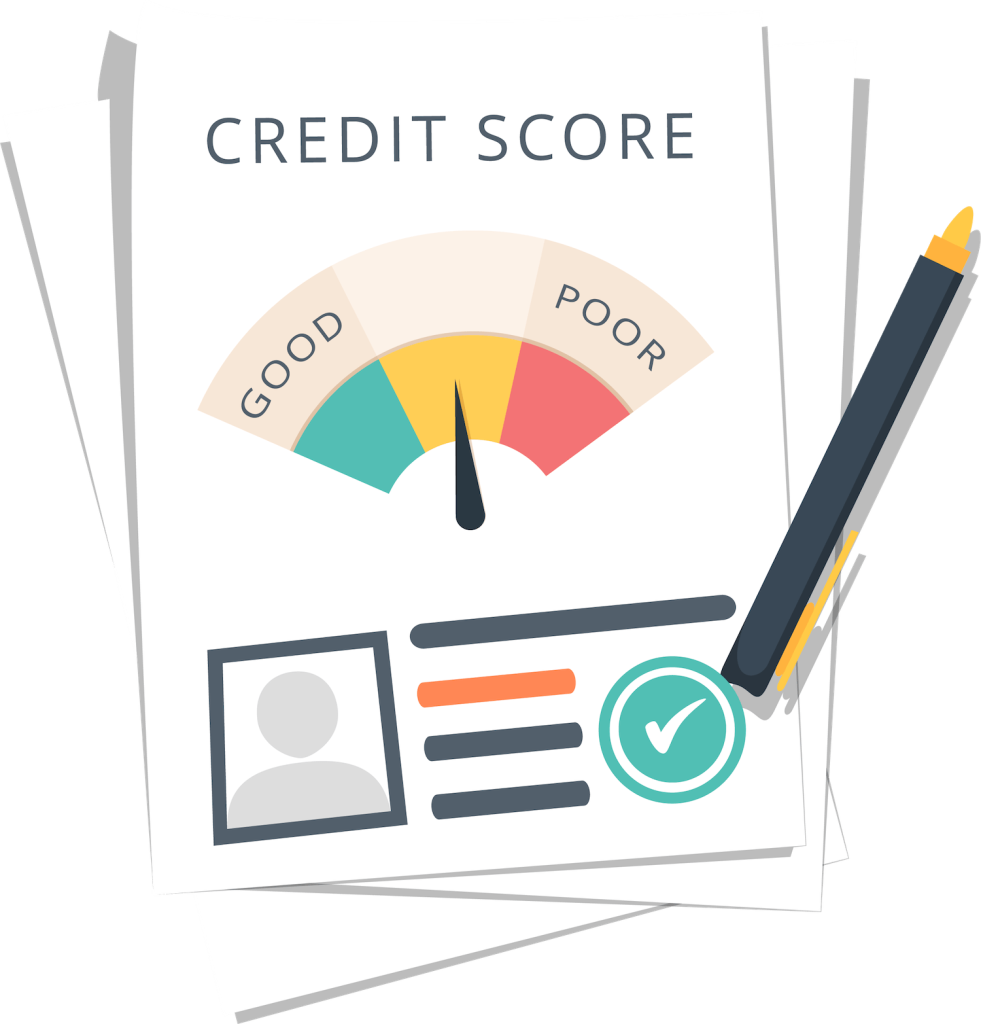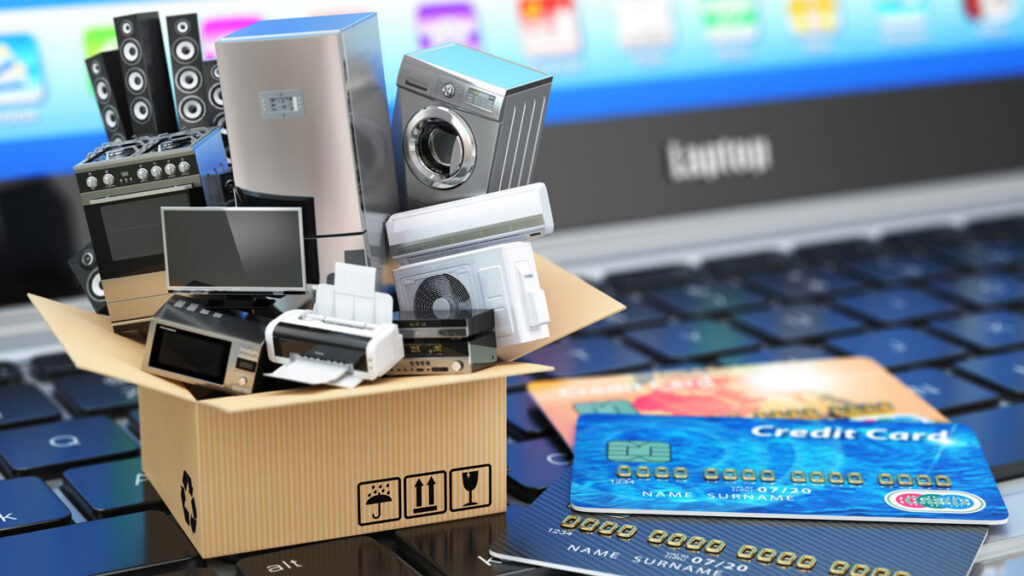
If you want to borrow money from a creditor, you will need to ensure you have a good credit score. A credit score — or “credit rating” — is a score you are given based on how responsible you are as a borrower.
Before approving your application for credit, a lender will check your credit report using a credit reference agency like Equifax, Experian or TransUnion. This is so they can see how likely it is that you will pay back what you owe.
Your credit report contains a great deal of financial information about you, such as what you owe to other lenders and how many applications you’ve made for credit, as well as any late or missed payments.
The good news is that there are lots of things you can do to improve your credit score, which we’ll reveal later. First, though, we’ll focus on whether a prepaid card — like one of Getsby’s virtual prepaid cards — will have an impact on your credit rating. Keep reading to find out.
Do prepaid cards affect your credit score?
Prepaid cards do not have an impact on your credit score because when you spend on them, you are not borrowing money. Any money you borrow — be it a credit card, personal loan or mortgage — will show up on your credit report, and your credit score will go up or down accordingly.
However, prepaid cards like Getsby’s only let you spend the amount that’s been loaded onto the card — which means you are not borrowing money. Plus, as they are not linked to your bank account, your usage of them cannot be reported to credit bureaus like Equifax or Experian.
Where can I use a prepaid card?
Many prepaid cards are advertised as “prepaid credit cards” or “prepaid debit cards”, which indicates that they can be used the same as traditional credit or debit cards. This means you can use them to make online purchases by entering the card details manually, or you can add them to your mobile wallet to make in-store purchases.
A Getsby prepaid card can be used anywhere you see the Mastercard symbol.
Here are some instances where you might pay using a prepaid card:
Subscriptions
You can use a prepaid card to subscribe to services like Amazon Prime, Netflix, F1 TV OnlyFans, MYM Fans and Twitch. If you don’t have enough money on the card, subscriptions can’t be automatically renewed, meaning you have greater control over your recurring spending.
Paying bills
Similarly, you can pay your bills using a prepaid card, safe in the knowledge that your provider can’t take more than what’s been loaded onto the card. This is something they may try to do if there are hidden fees or there’s a billing error and you’ve been charged twice.
Booking hotels
If you don’t have a debit or credit card, you can use a prepaid card to book a hotel.
Online shopping
A prepaid card can be used to make purchases on retail websites like Amazon and eBay.
Gaming
You can use a prepaid card to spend on gaming transactions, such as on Playstation Plus, Xbox Live, Fortnite and EA Sports FC (FIFA).
Gifting
A disposable prepaid card with money loaded onto it acts as a gift card that you can reward people with.
Abroad
You can also take your prepaid card on holiday with you and use it like a travel card.
Is a prepaid card right for me?
There are many circumstances when a prepaid card is a better option than a credit or debit card. Some of these are as follows:
- You are unable to get a credit card — If you have a poor credit score, it is less likely that you will be approved for a credit card. In this case, a prepaid card may be the answer.
- You can’t open a bank account — Similarly, you may be unable to open a bank account due to bad credit or fraud. If so, a prepaid card is an excellent alternative to a debit card.
- To help with budgeting — If you want to budget better, a prepaid card can help you do so, as you can only spend what’s been loaded onto the card.
- Managing your child’s spending — A prepaid card is a great way to teach children and teenagers about money and ensure they are spending safely online.
- Controlling an employee’s spending — It is easier to put spending caps on a prepaid card than a debit or credit card, which prevents employees from overspending.
Are prepaid cards safe to use?
Getsby prepaid virtual cards are safe to use due to the following security features:
- 3D Secure — Getsby uses the Mastercard SecureCode as an additional authentication step.
- Biometric identification — You will also be required to confirm your identity via biometric identification (where a photograph is taken of your face or an image of your fingerprint is captured).
- Payment tokenization — This is where an algorithmic code converts your card details into a series of letters and numbers to stop fraudsters from being able to access your information.
- No link to your bank account — As mentioned earlier, Getsby cards are not linked to your bank account, which means your financial details won’t be compromised in the event of a security breach.
- No physical card — With the Getsby virtual cards, there is no physical card for thieves to steal.
Some additional safety measures you can take yourself include:
- Being vigilant when shopping online and ensuring you’ve installed antivirus software
- Limiting the amount of money you load onto the card
- Keeping the card in a safe place, both at home and when you’re out and about
How do I get a prepaid card?
You can get physical prepaid cards from high street shops, supermarkets and banks, but virtual cards like Getsby’s can be applied for online.
Simply register for an account and choose which type of card you wish to apply for. There are no credit checks, so anyone can get one, as long as you are over 18 and a resident of the EEA, UK or EFTA.
Rather than receiving a plastic card in the post, you will receive an email within two minutes containing a 16-digit card number, expiry date and three-digit CVV number.
You can either top up the account balance of your reloadable card via bank transfer or credit or debit card or order additional disposable cards in your prepaid card account, which you will receive instantly.
Order your Virtual Card today
How much money can I put on a prepaid card?
Different prepaid cards have different conditions. For example, with Getsby’s reloadable green card, you can spend up to €9,000 per day or €30,000 per month, while the single-use black card lets you spend up to €2,500 per day or €30,000 per month across five cards (up to 50 cards per month).
Can I earn rewards on a prepaid card?
With the Getsby Virtual Green Card, you can reduce your CO2 footprint and become carbon neutral within two years. This is because Getsby donates 0.2 per cent of your spending to Eden Reforestation Projects in Kenya and Indonesia. This means that for every €100 you spend, Getsby will plant one tree.
How can I build a good credit score?
If you have a low or non-existent credit score and you want to borrow money, you will need to build your credit score to prove to lenders that you are a trustworthy borrower. The good news is that there are many ways you can try to do this. Here are some suggestions:
- Check your credit report — If you’re worried about your credit rating, the first thing you should do is check your score on a website like ClearScore or Credit Karma. This is so you can see whether the information creditors get from the credit reference agencies is up-to-date and accurate and any suggested changes that may improve your score.
- Ensure your address is listed correctly — One of the most important details the credit reference agencies hold about you is your home address, so it’s essential to make sure it is correct. If you’ve been at your current address for a long time, it can have a positive impact on your credit score, as it suggests that your circumstances are stable. Also, any old addresses that are still on file should be removed.
- Register to vote — Councils send voter information to credit reference agencies every month, so remember to register to vote at your new address if you move house. Doing so could mean you see an improvement in your credit score within eight weeks of making the change.
- Stay within your credit limit — If you are constantly close to your credit limit, lenders will assume that you rely on credit and may not be financially stable enough to pay back the money you owe them. So spend less and keep your credit utilisation low.
- Cancel unused credit cards and store cards — A considerable amount of available credit can harm your credit rating, so cancel multiple credit cards with available credit and unused bank accounts with untouched overdrafts.
- Minimise your credit applications — Every application for credit leaves a footprint on your file for a year. So, if you’ve been turned down for credit, it is best to wait a while before applying for further credit, as multiple applications for credit over a short period can negatively impact your credit score.
- Don’t miss payments — Missing, late or defaulted payments suggest to lenders that you’re struggling to manage your finances and might not be able to pay back what you owe. With this in mind, some of the payments you will want to stay on top of include credit cards, loans, mortgage and overdraft repayments, utility bills, car finance, mobile phone contracts, store cards and TV subscriptions.
- Remove financial links with others — Removing all financial links to people with bad credit (such as current or ex-partners and flatmates) may also improve your credit score. Lenders will also access their credit reports when deciding whether to accept your application.
- Spend on a credit card — If you already have a credit card, you can build your credit rating by regularly spending on it and paying back the money. Your credit card comes with a credit limit based on factors like your credit score, income and assets. This means you can spend up to that limit, provided you make your minimum payments on time. You’ll have to pay interest on any balance that’s carried over to the next month until it’s paid off. Any money you spend on a credit card is borrowed from your card issuer, meaning it will show up on your credit report. Be warned, though, that this is only a good idea if you are disciplined when it comes to your finances, as any late or missed payment can have a negative impact on your credit score.
- Use a range of credit options — If you are a responsible borrower, you can build your credit rating by borrowing from a range of sources. This demonstrates that you are capable of managing different types of borrowing. You may wish to consider getting an overdraft on your current account, taking out a credit card or loan or applying for a mortgage. Just remember that missing payments or applying for several of these in quick succession can damage your credit score rather than help it.
- Become an authorised user — You can benefit from someone else’s good credit history by becoming an authorised user on one of their credit cards and spending responsibly.
Order your Virtual Card today
Summary
If you want to borrow money from a creditor, you will need to ensure you have a good credit score. There are many things you can do to improve your credit score. However, prepaid cards do not have an impact because your usage of them is not reported to credit reference agencies.
When you apply for a prepaid card, your credit score is not taken into account, which makes them ideal for those who are unable to get a credit card or open a bank account, want help with budgeting, or wish to manage their child’s or an employee’s spending.
If you do want to improve your credit score, rather than getting a prepaid card, you can try the following:
- Checking your credit report to see what changes you should make
- Ensuring your address is listed correctly
- Registering to vote
- Staying within your credit limit
- Cancelling unused credit cards and store cards
- Minimising your credit applications
- Not missing payments
- Removing financial links to others with a bad credit score
- Responsibly spending on a credit card
- Using a range of credit options
- Becoming an authorised user on someone else’s card




